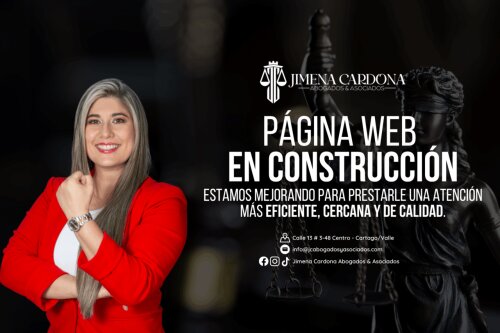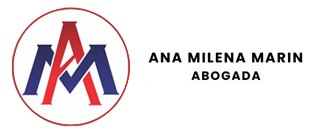Best Collaborative Law Lawyers in Cartago
Share your needs with us, get contacted by law firms.
Free. Takes 2 min.
Free Guide to Hiring a Family Lawyer
List of the best lawyers in Cartago, Colombia
1. About Collaborative Law Law in Cartago, Colombia
Collaborative Law, known locally as derecho colaborativo, is a structured dispute resolution approach where each party hires their own attorney and commits to settling matters outside the courtroom. In Cartago, Valle del Cauca, this method is commonly used for family disputes such as divorce, separation, child custody, and asset division, as well as certain civil conflicts. The process emphasizes open communication, transparency, and the involvement of neutral experts (financiers, child specialists, or appraisers) when needed.
Key features include separate representation for each party, a pre-agreement to avoid litigation if negotiations fail, and the use of written settlement plans. In Cartago, practitioners tailor collaborative sessions to local economic realities, such as small and family-owned businesses, agricultural land, and multi-generational assets typical to the region. This approach aims to preserve relationships and provide predictable, consent-based outcomes rather than adversarial court decisions.
Practitioners in Cartago emphasize confidentiality, voluntary participation, and practical outcomes over formal courtroom wins. A successful collaborative process ends with a comprehensive settlement agreement that is enforceable, often supported by careful drafting of parenting plans or asset division schedules.
“Mediacion y la conciliacion son herramientas eficaces para resolver conflictos fuera de los tribunales, con menos confrontacion y mayor control de las partes.”
Ministerio de Justicia y del Derecho - Information on mediation and conciliacion as ADR options in Colombia.
2. Why You May Need a Lawyer
Cartago residents may consider a Collaborative Law attorney in the following concrete scenarios:
- Divorce with complex assets in Cartago: you own a family business or substantial land near Cartago and need a structured plan for asset division without a courtroom battle.
- Child custody and support involving local schools and routines: you want a parenting plan that accounts for school transportation, weekends in Cartago, and reintegration of routines after a potential relocation.
- Business dissolution between partners in a family business: you need a clear buyout agreement, valuation of shares, and a plan to continue operations without harming family ties.
- Intergenerational wealth transfers: you seek to settle estate or inheritance issues with a plan that minimizes family conflict and preserves business continuity.
- Asset protection and debt restructuring within a small community: you require a transparent plan that avoids public scrutiny and preserves relationships with creditors and neighbors.
- Modifications to alimony or support arrangements due to changes in income or cost of living in Cartago: you need an adaptable, documented process to adjust payments without resorting to litigation.
3. Local Laws Overview
Colombia has a framework that supports ADR and collaborative processes through civil procedure rules and mediation mandates. In Cartago, these laws apply to disputes across family and civil matters that benefit from negotiated settlements rather than contested trials.
Ley 640 de 2001 governs conciliation and mediation as a pathway to resolve disputes before or alongside court actions. This law established mechanisms to encourage parties to settle conflicts out of court and to use trained conciliators and mediators in civil matters.
Código General del Proceso - Ley 1564 de 2012 provides the overarching civil procedure code for Colombia, including provisions on alternative dispute resolution and the procedural framework for settlements reached through mediation and collaborative negotiations. It outlines the roles of attorneys, the form of settlements, and the enforceability of agreements reached outside the courtroom.
In Cartago, the application of these laws is coordinated through local courts and the Valle del Cauca judicial system, with guidance from the Consejo Superior de la Judicatura and the Ministry of Justice. Local practice often involves pre-trial mediation sessions, private collaborative meetings, and formalized settlement agreements that are filed with the court if enforcement is necessary.
Fuentes oficiales y guías de ADR en Colombia señalan que estas herramientas buscan resolver conflictos con menor litigio y mayor control de las partes. Consejo Superior de la Judicatura y Ministerio de Justicia y del Derecho ofrecen orientación sobre procesos de mediacion, conciliacion y resolucion de conflictos en el marco civil y familiar.
“La mediacion y la conciliacion son herramientas para promover acuerdos fuera de los tribunales y evitar procesos largos.”
Ministerio de Justicia y del Derecho - ADR y mediacion en Colombia.
4. Frequently Asked Questions
What is Collaborative Law in Cartago, Colombia?
Collaborative Law is a voluntary process where each party hires their own attorney and agreements aim to resolve disputes without going to court. It emphasizes cooperation, full disclosure, and direct negotiation with the help of neutral experts when needed.
How does Collaborative Law differ from mediation?
In collaborative law, each party has a dedicated attorney who guides negotiations and protects legal rights. Mediation typically involves a single mediator who facilitates discussion without giving legal advice to either side.
How do I start a Collaborative Law case in Cartago?
You begin by consulting with a local attorney specializing in collaborative practice. The attorney will explain confidentiality, settlement goals, and the commitment to avoid litigation if negotiations fail.
What is the typical cost range for Collaborative Law in Cartago?
Costs vary by complexity and professionals involved, but you can expect attorney fees for collaborative sessions plus any neutral experts. For small families with modest assets, plan for a mid-range cost that remains lower than protracted litigation.
How long does a Collaborative Law process take in Cartago?
Most cases conclude within 3 to 9 months, depending on asset complexity, child arrangements, and cooperation levels. Some matters may stretch longer if schedules or valuations are challenging.
Do I need to be in Cartago to use a local Collaborative Law attorney?
No. You can hire a local Cartago attorney or an attorney from nearby Valle del Cauca towns. Virtual sessions are common, but you may need in-person meetings for significant negotiations.
What is required to qualify for Collaborative Law?
Eligibility typically includes a genuine intent to settle, willingness to disclose necessary information, and a commitment from all parties to avoid courtroom litigation during the process.
What is the difference between Collaborative Law and litigation?
Collaborative Law aims for negotiated settlements with private agreements, avoiding court hearings. Litigation results in a decision from a judge after a formal court process and discovery.
Can Collaborative Law handle child custody and finance issues together?
Yes. Collaborative Law often addresses parenting plans, school logistics, and financial arrangements in a single framework, with the parties and attorneys working toward a holistic settlement.
What happens if we cannot reach an agreement in Collaborative Law?
If negotiations fail, parties may terminate the process and pursue litigation. Each party would then seek separate representation for a court case.
Is Collaborative Law legally recognized in Cartago?
Yes. Colombian procedural rules and ADR guidelines apply to collaborative efforts, with enforceable settlements supported by Colombian civil law and court procedures when necessary.
Should I sign a non-litigation agreement before negotiations?
Many collaborative agreements include a commitment not to litigate while negotiations continue. You should review such agreements with your attorney to ensure it aligns with your legal rights.
5. Additional Resources
- Ministerio de Justicia y del Derecho - Official government information on mediation, conciliation, and ADR frameworks.
- Consejo Superior de la Judicatura - Administrative guidance on civil procedure, ADR, and court rules in Colombia.
- Corte Constitucional - Constitutional guidance affecting access to justice and ADR in Colombia.
6. Next Steps
- Define your goals and assets in Cartago: list all properties, debts, and family arrangements that you want to address in a collaborative process. This helps you and your attorney scope the engagement.
- Search for a local attorney with collaborative law experience in Cartago or Valle del Cauca: use reputable directories, bar associations, and referrals from trusted sources. Request a consultation to assess fit and approach.
- Prepare required documents: gather financial statements, property deeds, school and childcare information, and any existing agreements or valuations relevant to the case.
- Conduct an initial consult with your chosen attorney: discuss confidentiality, the non litigious commitment, and the process timeline. Confirm that the attorney will not litigate on your behalf if negotiations fail.
- Agree on a plan and timelines: set milestones for asset valuation, custody planning, and expert involvement, with clear deadlines to keep negotiations on track.
- Involve necessary neutral experts: if banking, taxes, valuation, or child welfare assessments are needed, agree on qualified professionals and how their costs will be shared.
- Sign a collaborative engagement and disclosures agreement: ensure both parties understand the scope, confidentiality, and non litigation pledge before substantive negotiations begin.
Lawzana helps you find the best lawyers and law firms in Cartago through a curated and pre-screened list of qualified legal professionals. Our platform offers rankings and detailed profiles of attorneys and law firms, allowing you to compare based on practice areas, including Collaborative Law, experience, and client feedback.
Each profile includes a description of the firm's areas of practice, client reviews, team members and partners, year of establishment, spoken languages, office locations, contact information, social media presence, and any published articles or resources. Most firms on our platform speak English and are experienced in both local and international legal matters.
Get a quote from top-rated law firms in Cartago, Colombia — quickly, securely, and without unnecessary hassle.
Disclaimer:
The information provided on this page is for general informational purposes only and does not constitute legal advice. While we strive to ensure the accuracy and relevance of the content, legal information may change over time, and interpretations of the law can vary. You should always consult with a qualified legal professional for advice specific to your situation.
We disclaim all liability for actions taken or not taken based on the content of this page. If you believe any information is incorrect or outdated, please contact us, and we will review and update it where appropriate.









